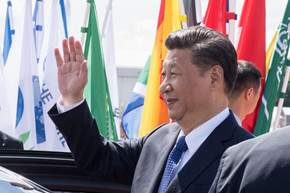Joint efforts on air quality
Toxic fumes know no borders. Joint efforts by adjacent provinces and cities are of vital importance to effective air pollution control.
That explains why coordinated actions were emphasized by the State Council as one of the 10 measures for air pollution control in its meeting at the weekend.
Latest statistics show that the air quality in Beijing, Tianjin and Hebei province is lower than the national average. Beijing enjoyed its cleanest air during the month it hosted the Olympic Games in 2008 thanks to the suspension of production in all industrial enterprises in the adjacent province and cities. This shows how these industries contribute to the capital's air pollution. The toxic exhaust fumes from Beijing's 5 million motor vehicles have also spread to the surrounding areas.
The total amount of coal Hebei province consumed amounted to 200 million tons in the year 2012 while the figure was 23 million tons in Beijing during the same period. Hebei produces one fourth of the country's crude steel. It is the biggest producer of nitrogen dioxide and the second-largest producer of smog.
Beijing's air quality will never considerably improve unless neighboring Hebei eliminates or upgrades its polluting industries.
As it is neither realistic nor justifiable for the capital to improve its air quality at the expense of Hebei's economy, a mechanism is obviously needed for both the capital and its adjacent province and cities to benefit from air pollution control.
Beijing has already signed agreements with Tianjin and Hebei province for joint efforts in air pollution control. Such efforts, if effectively realized, will provide Hebei and Tianjin with an opportunity to upgrade their industries.
The Yangtze River delta, Pearl River delta and some other regions have a similar need for cooperative action.
The significance of air pollution control goes far beyond the quality of people's lives. If joint efforts can be coordinated to both upgrade polluting industries in underdeveloped provinces or cities and improve air and environmental quality in general in larger regions, it would be of significance to the country's transformation of its economic growth mode.
If governments at all levels looked at the issue in this way, the days would not be too far away when we would be able to enjoy clear air.

























